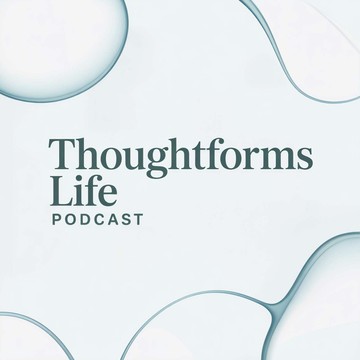

Michael Levin
Biologist and professor at Tufts University specializing in bioelectricity, morphogenesis, and synthetic living systems; leads research on xenobots, regenerative medicine, and unconventional cognition in biological systems.
Top 10 podcasts with Michael Levin
Ranked by the Snipd community

1,975 snips
Nov 30, 2025 • 0sec
#486 – Michael Levin: Hidden Reality of Alien Intelligence & Biological Life
Michael Levin, a biologist from Tufts University, delves into the fascinating realms of bioelectricity and synthetic living systems. He discusses the fluid boundary between living and non-living entities, emphasizing the importance of behavior in understanding cognition. Levin introduces his TAME framework for exploring alien intelligences and shares insights on xenobots and anthrobots, highlighting their unique healing behaviors and age-reversal capabilities. He also explores the implications of Platonic space and proposes innovative ways to map unconventional minds and behaviors.

594 snips
Jan 21, 2026 • 1h 47min
#849: Dr. Michael Levin — Reprogramming Bioelectricity, Updating "Software" for Anti-Aging, Treating Cancer Without Drugs, Cognition of Cells, and Much More
Dr. Michael Levin is a pioneering biologist at Tufts University, specializing in developmental bioelectricity and regeneration. He dives into how bioelectric signals serve as a 'software' that can reprogram biological systems, potentially revolutionizing treatments for cancer and aging. Levin discusses fascinating concepts like self-organizing tadpoles, rewriting anatomy without DNA changes, and the implications of electrical patterns in cellular memory. He also emphasizes cognition beyond neurons, suggesting a broader understanding of intelligence in biological systems.

178 snips
Sep 22, 2025 • 1h 13min
Michael Levin Λ Anil Seth: Your Brain Isn’t a Computer and That Changes Everything
Anil Seth, a cognitive neuroscientist exploring consciousness, and Michael Levin, a biologist studying bioelectricity and xenobots, dive into the debate over whether the brain functions as a computer. Seth discusses the concept of 'islands of consciousness' and how understanding consciousness might rely on biological substrates. Levin counters with insights on nonstandard substrates and emergent agency. They also explore psychophysics, consciousness in xenobots, and how algorithms might fall short of capturing life and mind. Together, they challenge traditional views on cognition and emergence.

56 snips
Sep 20, 2025 • 1h 24min
411 - Dr. Michael Levin & Dr. John Vervaeke - Brave New Biology: Intelligence Trumps DNA
In this discussion, Dr. Michael Levin, a pioneering biologist at Tufts, delves into how cell collectives exhibit intelligence through bioelectric patterns and memory. He shares fascinating insights on regenerative capabilities, including programmable regeneration using bioelectric interfaces. Dr. John Vervaeke, a cognitive scientist and philosopher, amplifies the conversation by examining embodiment beyond physical forms and ethical implications of manipulating biological systems. Together, they challenge conventional views on intelligence and biological integration.

37 snips
Oct 3, 2025 • 1h 6min
Where Biology Goes Off the Rails - Dr. Michael Levin, DemystifySci #369
Dr. Michael Levin, a synthetic biologist from Tufts University, challenges traditional notions of life. He argues that cognition emerges far before cellular structures, suggesting a continuum rather than binary definitions of life. Levin discusses how simple networks exhibit behaviors like habituation and learning, revealing insights about biological systems. He emphasizes the importance of operational definitions and how understanding cognition can reshape our interactions with nature, suggesting that higher causal emergence can even enhance learning in molecular systems.

30 snips
Oct 28, 2025 • 51min
Could Biological Robots Heal Us from the Inside? | Michael Levin
In this enlightening discussion, Michael Levin, a distinguished biologist at Tufts University, explores the fascinating world of bioelectricity and Xenobots—living robots made from frog cells. He shares how these simple organisms can spontaneously heal brain tissue and even replicate through self-organization. Levin challenges our understanding of life, discussing the role of electricity in biological cognition and the potential of anthrobots, human cells designed to heal. This conversation reveals the intriguing intersection of biology, consciousness, and engineering.

21 snips
Dec 5, 2025 • 41min
42 Minutes of the Best Moments in Consciousness Science Giant's Shoulder 2025
Anil Seth, a neuroscientist renowned for his work on perception, dives into how our brains rely on predictions to shape reality. Michael Levin shares his radical views on cognition in simple systems and the potential for synthetic life to possess awareness. Peter Godfrey-Smith explores the evolution of agency and why nervous systems are critical for subjective experience. Nick Lane connects metabolism and bioelectricity to feelings, even suggesting bacteria might experience basic emotions. Mark Solms emphasizes that raw feelings form the heart of consciousness, driven by brainstem systems.

11 snips
Jan 23, 2026 • 1h 28min
Neuroscience Beyond Neurons in the Diverse Intelligence Era | Michael Levin & Robert Chis-Ciure
Michael Levin, biologist studying bioelectricity and morphogenesis, and Robert Chis-Ciure, philosopher-turned consciousness researcher, explore cognition beyond neurons. They discuss cells and tissues as problem-solvers. They examine bioelectric networks, memory without synapses, collective morphological computation, and implications for AI, consciousness, and ethics.

Sep 25, 2025 • 59min
Michael Levin part 2
In this engaging discussion, Michael Levin, a developmental biologist at Tufts University, delves into the fascinating interplay between Platonic patterns and biological systems. He challenges listeners to consider if mathematical structures might guide biology, as seen in cicada cycles. Levin posits that patterns themselves may possess agency, suggesting a new way to view consciousness in AI. He emphasizes the need for understanding and communicating with diverse minds, urging us to rethink the boundaries of organism and machine.

Feb 21, 2025 • 1h 1min
Biological and Technological Information Processing: Commonalities, Differences and Implications
Michael Levin, a biologist and director of the Levin Lab, delves into the intriguing parallels and distinctions between biological and technological information-processing systems. He explores astonishing biological intelligence, like how planarians retain memories through regeneration and how tadpoles reorganize their anatomy. Levin highlights the role of bioelectricity in development and the implications for AI and ethics, questioning our assumptions about autonomy and intelligence in both nature and technology. He also discusses the creativity of biology in problem-solving and the unexpected behaviors emerging from simple systems.


